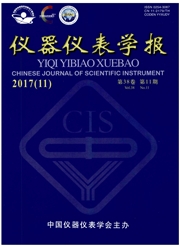

 中文摘要:
中文摘要:
通过对支持工业现场设备实时通信控制网络的研究,为通信协议的改进和实际工程应用提供指导。从周期性信息时延的确定性、有界性和网络性能出发,对CAN总线(CSMA/CA)、Ethernet(CSMA/CD)、Profibus总线(混合介质访问方式)和FF总线(集中介质访问方式)的通信机制进行定量和定性的对比分析。由信息负载率与吞吐量、平均信息时延、通信冲突率和网络利用率的关系可知,CAN总线在诸多性能方面优于Ethernet,FF总线在实时性方面优于Profibus总线。因此CAN总线特别适合于短通信距离的基于事件触发的现场信息实时通信,FF总线适合于对周期性信息具有严格实时性要求的应用场合。
 英文摘要:
英文摘要:
The control networks, as infrastructure of communication to support real-time traffic among field devices in factory floor, are studied, which will set up a good basis for further improvement and realization of control networks. A discussion about the features of CAN (CSMA/CA), Ethernet (CSMA/CD), Profibus (Hybrid medium access protocol) and FF (Centralized medium access protocol) is presented, and then, the quantitative and qualitative analyses of the four kinds of networks are conducted and compared in following ferformance aspects.the deterministic and bounded characteristics of periodic messages, and the relation of throughout, collision probability, average message delay and network utilization with traffic load, which indicates that CAN is superior to Ethernet for the application in which message traffics are based on eventtriggered and the direct transmission distance between two nodes is short, and FF is superior to Profibus for the application in which periodic message traffics have stringent time constraints.
 同期刊论文项目
同期刊论文项目
 同项目期刊论文
同项目期刊论文
 期刊信息
期刊信息
